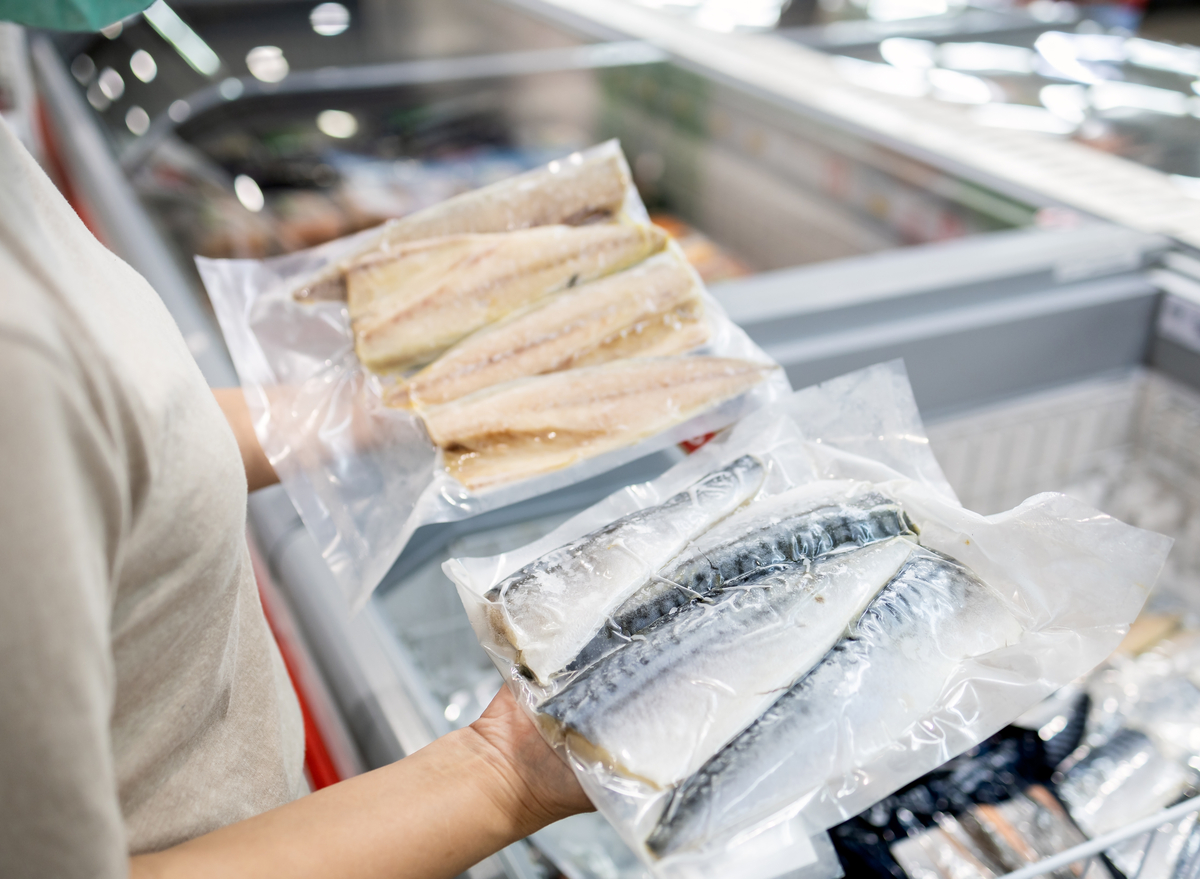The U.S. Just Banned These Grocery Imports From Russia

Several food and restaurant companies have stopped their business in Russia after the invasion of Ukraine on Feb. 24 in addition to the U.S. government taking action. But on March 11 the White House announced new sanctions, including an Executive Order signed by President Biden to ban some goods from the country to further hold the country and hold President Putin accountable.
In addition to high-end watches, jewelry, vehicles, apparel, and non-industrial diamonds, the U.S. is no longer allowing any alcohol and vodka, or seafood to be imported from Russia in an effort to continue to isolate the country from the global economy.
The news comes a day after the Eastern European country said it was no longer exporting over 200 items, including medical equipment, cars, farming machinery, video equipment, train equipment, and other manufacturing goods.
“This will deny Russia more than $1 billion in export revenues and ensure U.S. citizens are not underwriting Putin’s war,” the statement from the White House reads. “The United States retains the authority to impose additional import bans as appropriate.”
However, the ban shouldn’t affect grocery shoppers too much—the Distilled Spirits Council of the United States says that Russian vodka amounts to just 1.2% of the total amount of alcohol imported in the first half of 2021, per Supply Chain Dive.
As for seafood, last year Russia exported about $1.2 billion worth to the U.S., according to the Anchorage Daily News. Seven other countries exported more, though, and Russia stopped importing American seafood in 2014.
Yet the new ban on Russian fish, crab, and more is a “bright spot” for American fisherman—especially in Alaska, Sen. Dan Sullivan says. Some government officials in the state have been working on achieving something similar for years. Now they have the leverage to charge more, which could bring some much-needed funds to local economies.
With all that being said, shoppers may soon see some price increases and shortages on shelves…but not all because of the import ban.
The price of wheat recently went up over 50%, Russia just halted its export of the crop, and Ukrainian farmers are prioritizing feeding citizens. The area around the two countries is known as the “breadbasket of the world” and makes up almost 30% of the world’s wheat supply. Experts say a prolonged war could mean grocery items with wheat as an ingredient could be more expensive and harder to find as a result.









